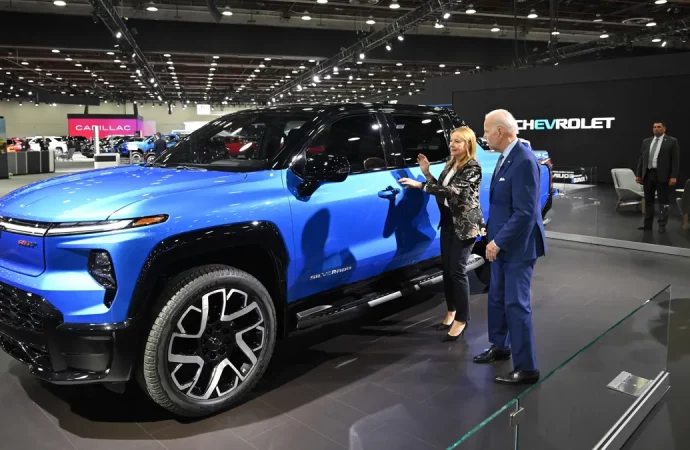Strategic Shift: US Takes Measures to Limit China’s Influence in the Electric Vehicle Supply Chain In a significant move, the United States is taking steps to restrict China’s role in the electric vehicle (EV) supply chain. This article examines the motives behind this strategic shift, the potential consequences for the global EV market, and the
Strategic Shift: US Takes Measures to Limit China’s Influence in the Electric Vehicle Supply Chain
In a significant move, the United States is taking steps to restrict China’s role in the electric vehicle (EV) supply chain. This article examines the motives behind this strategic shift, the potential consequences for the global EV market, and the reactions from key players in the industry.
Reasons Behind the Strategic Shift
- National Security Concerns: The US government cites national security considerations, aiming to reduce dependency on foreign nations, particularly China, for critical components in the EV supply chain.
- Supply Chain Resilience: The ongoing global supply chain challenges, highlighted by the COVID-19 pandemic, have underscored the need for increased resilience and diversification in crucial industries, including electric vehicles.
- Technology Leadership: The US aims to bolster its position as a leader in EV technology by fostering a more robust domestic supply chain, potentially reducing reliance on Chinese manufacturers.

Image by: https://i. kinja-img. com
Comparative Table: US-China EV Supply Chain Dynamics
| Aspect | Previous Dynamics | Strategic Shift |
|---|---|---|
| Critical Components | Dependency on Chinese suppliers for key components | Efforts to diversify and localize production |
| Market Dominance | China’s strong presence in EV manufacturing and battery production | US seeks to strengthen its role in technology leadership |
| Global Collaboration | International collaborations in the EV industry | Increased focus on domestic supply chain resilience |
Potential Implications
- Global EV Market Impact: Changes in the US-China EV supply chain dynamics could have ripple effects on the global electric vehicle market, influencing production costs and market competition.
- Market Disruptions: The strategic shift may lead to disruptions in existing supply chain relationships, affecting both US and Chinese manufacturers and suppliers.
- Innovation and Research: Increased focus on a domestic supply chain may drive innovation and research investments within the United States, potentially reshaping the technological landscape of the EV industry.
Stakeholder Reactions
Reactions from key stakeholders, including automakers, suppliers, and industry associations, are varied. While some express concerns about potential disruptions and increased costs, others see opportunities for innovation and growth.
Expert Analysis
Industry experts provide insights into the potential consequences of the US strategic shift, analyzing the impact on global supply chains, technology development, and market dynamics in the electric vehicle sector.
Conclusion
As the United States takes measures to limit China’s role in the electric vehicle supply chain, the global automotive industry braces for changes that could reshape market dynamics and technological leadership. Stay tuned for ongoing coverage as developments unfold in this strategic and dynamic sector.
















Leave a Comment
Your email address will not be published. Required fields are marked with *